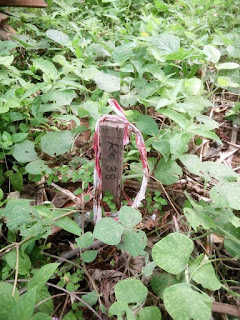By Victor Essang
UYO
As part of measures to enhance quality education in the country, the National Senior Secondary Education Commission (NSSEC) has advocated the adoption of minimum Standards for Senior Secondary Education.
The Executive Secretary, NSSEC, Dr Iyela Ajayi made the advocacy Wednesday during the Critique workshop on the draft document on the minimum standards for senior secondary education which took place on Uyo.
Ajayi said the national minimum standards when approved and implemented would set bench-marks for all aspects of senior secondary education in the country.
 |
| Executive Governor of Akwa Ibom State, being represented by his Deputy, Mrs. Akon Eyakenyi |
"Also, the national minimum standards would play an important and critical role in the repositioning of senior education in Nigeria", he added.
He noted that the document "is aimed at ensuring that there is uniformity in the operation of senior secondary education by all operators, to put Nigeria on the same pedestrian with other nations that are ahead of her"
While calling on the critical stakeholders to put in their best in the exercise of critiquing the document, Ajayi expressed confidence that when released and implemented, the minimum standards would revolutionize senior secondary education in Nigeria.
 |
| The Headtable |
Ajayi urged the state government to key into the initiative with the establishment of Secondary School Education Board to domesticate the commission act as well as follow guidelines for assessing and utilizing funds from the commission.
He thanked the governor, Pastor Umo Eno for accepting to host the workshop and for his giant strides in the education sector.
Declaring the workshop open, the Akwa Ibom state governor, Pastor Umo Eno stressed the need to improve the quality of facility and personnel in education sector for national development.
Represented by his deputy, Senator Akon Eyakenyi, the governor who described education as the heart of socio-economic development, observed, "We can't grow beyond the quality of our school system"
"If we sincerely want to fix Nigeria, we must re-visit our school system with a view to establishing certain irreducible minimum standards in the quality of personnel, infrastructures and curriculum".
While describing Senior Secondary School as a critical segment of the education chain, Eno, who said the minimum standards will benefit the state, stressed the need for proper follow up for the implementation of the document.
 |
| Participants at the event |
He said his administration prioritizes skills-driven education under the ARISE Agenda and expressed readiness to invest much in the sector.
The governor disclosed that his administration was remodeling schools across the state and providing other educational materials to Akwa Ibom children.
He made case for professionalizing teaching, set minimum standards for school infrastructures and environment update curriculum and define procedure for school licensing.
Eno lauded the Commission for the steps taken to regulate the senior secondary school sector and for creating a platform for stakeholders to interface and critique the document.
The Director, Quality Assurance, NSSEC Alhaji Ibrahim Abdulkareem, while welcoming the delegates from the 17 southern zone applauded Akwa Ibom state for the improvement in the education sector.
The Commissioner for Education, Mrs Idongesit Etiebet, said the governor places education as key priority sector in his blueprint.
Etiebet said, His Excellency is usually enthusiastic and supportive of activities directed to the development of the education sector for the betterment of our children"
She pledged the partnership of the state government to the commission by paying the counterpart funding to ensure quality minimum standards of secondary education in the state.
She called on all stakeholders in the education sector to be diligent in appraising the regulatory framework to enable them arrive at positive outcomes that would guarantee quality assurance in education across the country, emphasizing that it would help children enjoy qualitative and quantitative learning anywhere in Nigeria.
The three days workshop featured, technical session and syndicate group presentation among others.

























